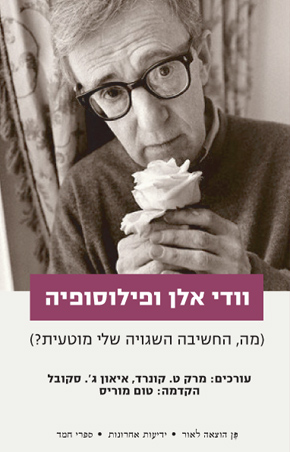
Comedian, writer, director, actor, musician, and deep thinker, Woody Allen is clearly trying to say something, but what? And why should anyone care? Fifteen philosophers representing different schools of thought answer these questions, focusing on different works and varied aspects of Allen’s multifaceted output. These essays explore such topics as how Schopenhauer’s theory of humor emerges in Annie Hall; why, for all his apparent pessimism, Allen gives a brighter alternative to the Bogartian nihilism of film noir; the importance of integrity for the Good Life, as found inManhattan; and the fact that just because the universe is meaningless and life is pointless is no reason to commit suicide. Also here are droll, probing essays on why hedonism is a health hazard, and why, despite the fact that Earth may be swallowed by a black hole and crushed to the size of a peanut, the toilet continues to overflow.